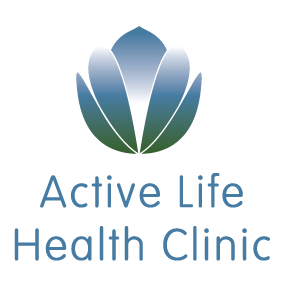Do you remember Stuart Smalley (funny, I remembered his name as Smiley) from the Saturday Night Live skip? He used to host a mock self-help show and he would stand in front of a mirror and say positive affirmations to himself. It was meant to be funny–and was–at the time, but hey, we really could use some positive words, don’t you think?
I was speaking with a patient recently about the power of words. They can lift you up. They can crush you. They can affect how you feel for a day and, sometimes, even for life. I love words. One of my fave games as a kid was Boggle–the sound of shaking that partially opaque plastic box with the dice covered in letters was music to my ears. A favourite toy was my Speak & Spell. And, oh, how I loved to read. I once had ice cream dripping unnoticed down my arm and onto the back of our station wagon while my sister and cousins laughed at me because I was so immersed in my book. So…words.
Let’s Use More (and Interesting/Fun/Unique) Positive Words

I found this article about long lost positive words and this one about rare words with beautiful meanings. Who wants to join me (and these authors) in reviving some of these puissant (powerful, mighty, potent) words? Here are some that I think I could incorporate into my life. I found the origin or how to use some of these words, but not all. Feel free to let me know if you know more about any of these words and how to use them.
Aeipathy: like the reverse of apathy, it’s an enduring and consuming passion
Ataraxia: a state of calmness and serenity (“Serenity now!”)
Balter: to dance without skill but with great enjoyment (I recommend everyone try this!)
Bimble: walk with a leisurely pace (I don’t do this, unless I’m walking my dog who’s making me practice fika)
Beamish: cheerful and optimistic (I think this is an easy one to remember)
Copacetic: in excellent order (I think most of us know this word, but why have I never before seen it in writing, that I can recall? I had no idea this was how it’s spelled)
Eunoia: literally means beautiful or good thinking; it can mean a healthy mental state of mind or it can mean favouring/protecting/supporting someone (Greek word)
Fellow feeling: an understanding and compassion you feel toward someone else with a shared experience
Fika: a moment to slow down and appreciate the little things in life (my dogs have always made me do this as they take their time sniffing everything and stopping to stare at what I think is nothing) (Swedish word)
Gigil: pure joy and irresistible feeling you get when you see something cute, like wanting to squeeze a baby’s cheeks (Philippines word)
Irenic: favouring action toward peace, moderation, or conciliation
Lagom: just the right amount; not too much, not too little (like Goldilocks’ choice) (Swedish and Norwegian word)
Meraki: to do something with soul or passion
Metanoia: the journey of changing your heart, mind, or way of life, like a spiritual awakening
Mizzle: means the same as drizzle, but I like the sound of it better (we can use this word a lot in Vancouver)
Mudita: delight in the happiness of others (I think this is a quality more of us should try to cultivate)
Munificence: the act of being generous
Orphic: mysterious, mystical, and enchanting; beyond ordinary understanding (where I think all the best things sit, like Qi)
Recombobulated: we all know what it feels like to be discombobulated at times, but I had never previously heard of this word for putting things back in order or removing confusion (apparently an airport in Milwaukee has a recombobulation area)
Respair: recovery from despair; a new feeling of hope
Snuggery: a cozy room
Health Can Be Found in the Language We Use
When we talk about health and wellness, we often focus on the physical needs of the body. Eat healthy. Exercise regularly. Get enough sleep. All of those things are obviously important.
But there are so many more ways we can consider our health. In the medical world, so much of the language is negative and war-like. Even getting test results back, we’re hoping the result is negative because “positive” is usually a bad thing.
As this article points out, maybe we shouldn’t be using so much militaristic and violent language, like “kill,” “fight,” “combat,” “battle,” and “destroy” when we are talking about health.
I much prefer offering respair and using orphic treatments so that people can feel recombobulated while they seek their metanoia and enjoy a lagom amount of fika while they bimble and balter their way into ataraxia.

